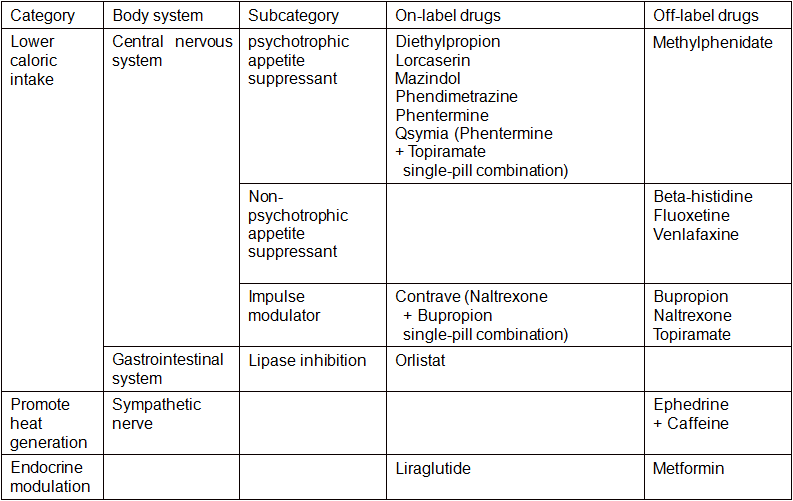

According to the categorization of anti-obesity drugs that I have provided in the previous article, appetite suppressants are the mainstay of anti-obesity medication. We will discuss appetite suppressants later as there are a wide variety of drugs and new drugs continue to be developed in this area. First, let us talk about lipase inhibitors. Personally, I believe lipase inhibitors offer a valuable choice as they have clearly understood mechanism of action and good safety profiles.

Table 1. Appetite suppressants within anti-obesity medication category.
In the 1990s, improving quality of life was introduced as a treatment goal. Many drugs including Propecia, for hair loss, Viagra for erectile dysfunction and Xenical (the trade name for orlistat) for weight loss fall into this category. They were called the tree happy drugs. Since patient expiration, many pharmaceutical companies around the world are offering various generic products at affordable prices.
[Advertisement] FCR® (Fractional Prickle CoralCalcium Regentron) – Manufacturer: (www.illglobal.com)]
Most anti-obesity drugs are appetite suppressants that work on the central nervous system but lipase inhibitors work on the gastrointestinal tract and have been classified as “RX” by the DEA of the US, which affects Korea’s classification of psychotrophic drugs. Orlistat has been approved for use in individuals aged 12 or older with long-term safety data.
From 1998 to 2005, the frequency of prescribing the appetite suppressant sibutramine increased four times in the UK. On the other hand, prescription of orlistat increased 35 times in the same period. In Korea, the prescription rate is relatively low due to the belief that the standard Korean diet is leaner than that of the Western countries. However, according to the Korea National Health and Nutrition Examination Survey, the proportion of fat in the daily caloric intake is increasing in Koreans. It would be wise to reconsider the role of lipase inhibitors in the Korean population.
-To be continued




















